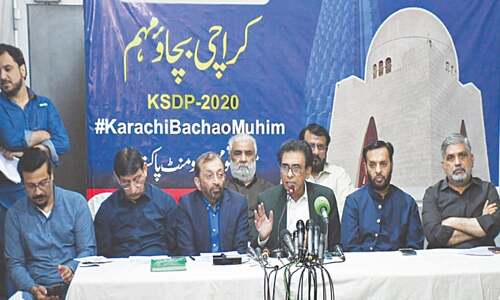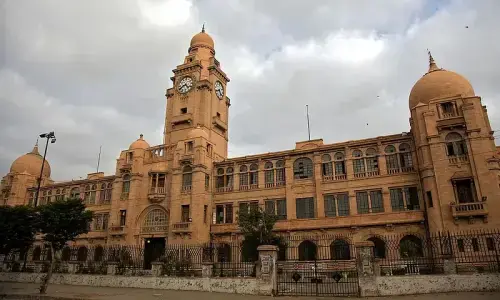KARACHI: The National Commission on the Status of Women (NCSW) in collaboration with the United Nations Development Programme (UNDP) and UN Women held a consultative session on Monday about drafting the code of ethics to prohibit hate speech against women politicians and parliamentarians to enhance their political participation.
Surprisingly, several women parliamentarians who had come to attend the session left soon after recording their attendance in a group photo taken at the beginning of the programme when the chief guest on the occasion retired Justice Majida Razvi arrived. But they didn’t realise that their participation was important since NCSW had dedicated the entire consultation to what they have to go through in their day-to-day affairs.
They are trolled on social media, they become targets of hate speech, they face character assassination and they receive threats. “NCSW will raise its voice for any wrongdoing against women or whenever women are undermined,” said NCSW chairperson Nilofar Bakhtiar.
She pointed out that the 17 per cent women in Pakistan’s parliament had brought a change in the behaviour of men by just their presence. “The men have started behaving themselves on the floor of the house,” she said.
About women in politics facing hate speech, Ms Bakhtiar said if anyone wanted to criticise the women politicians, they may comment on their work instead of getting personal.
The Deputy Resident Representative UNDP Pakistan, Aliona Niculita, said that they work on gender equality and women empowerment. “It is our priority area. Women empowerment and women participation is a big part of our plans for the coming years,” she said.
Meanwhile, MPA Adeeba Hassan of the Pakistan Tehreek-i-Insaaf, who is also a focal person for NCSW, said that she had with her resolutions of several meetings regarding hate speech against women, which she took with her to the Sindh Assembly. “But since we are in the opposition, all actions on our work are delayed. Now I am planning to bring up the issue again this March 8, which is Women’s Day,” she said.
“We want a law that will give women their rights and the respect they deserve as a priority, where the men don’t push women back,” she said.
Nabila Malick of NCSW said that sadly hate speech has found acceptability. “While researching on the issue and holding such consultations in other parts of the country, we have met women parliamentarians who say that they will never let their daughters enter politics as they don’t want them to be treated like they themselves are treated. We have also gathered several suggestions in the context of hate speech and have prepared a charter of demands,” she said.
She also added that hate speech was prohibited by law in many countries but not in Pakistan. She followed by sharing the code of ethics from some countries in Europe with certain things to keep in mind before coming up with our own code of ethics such as taking care not to hurt freedom of speech when trying to control hate speech.
She also said that the media should condemn hate speech and not give visibility to bad posts by sharing or retweeting them. There was also criticism of the code of conduct of the Election Commission of Pakistan (ECP), which only addresses the male gender by writing ‘he’, ‘his’ or ‘him’.
MNA Ghazala Saifi said that they come with an agenda to serve the people of Pakistan but are getting punished for it. “Here even 18-year-old boys are calling us to say ‘I love you’ to us,” she said. “More women will join politics when they are respected,” she added.
Barrister Haya Emaan Zahid, member NCSW, and CEO of the Legal Aid Society, said that the ECP also needed an undertaking in their forms for politicians registering for elections that they will not insult or disrespect women.
Finally, retired Justice Majida Razvi, who was also presiding over the session, suggested examining Article 63 to see how it can be expanded. She also said that most political parties don’t have a code of conduct in their constitutions, which is important to have. “Basically, we need a code of conduct that can safeguard women and we all really need to work hard for it,” she said.
Journalist Lubna Jerar, Khadija Soomro of Human Rights Commission of Pakistan, Additional Advocate General of Sindh Kalpana Devi, Fareeda Tahir of Sindh Human Rights Commission, feminist activist Sarah Zaman, Shaiyanne Malik and Nadia Kazi from the Women Chamber of Commerce also spoke.
Sindh Commission on the Status of Women chairperson Nuzhat Shirin also spoke.
Published in Dawn, February 21st, 2023


































